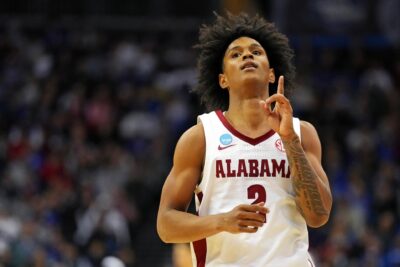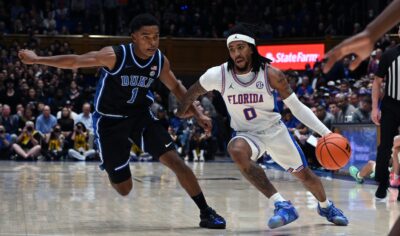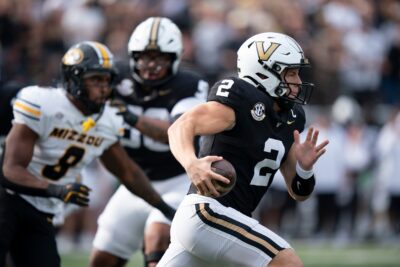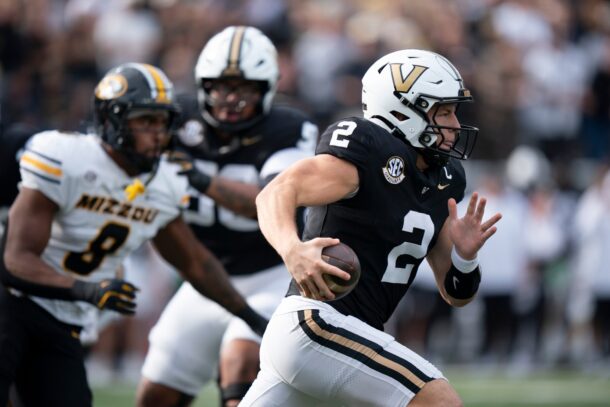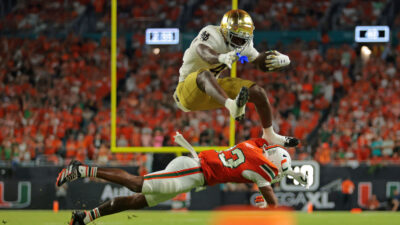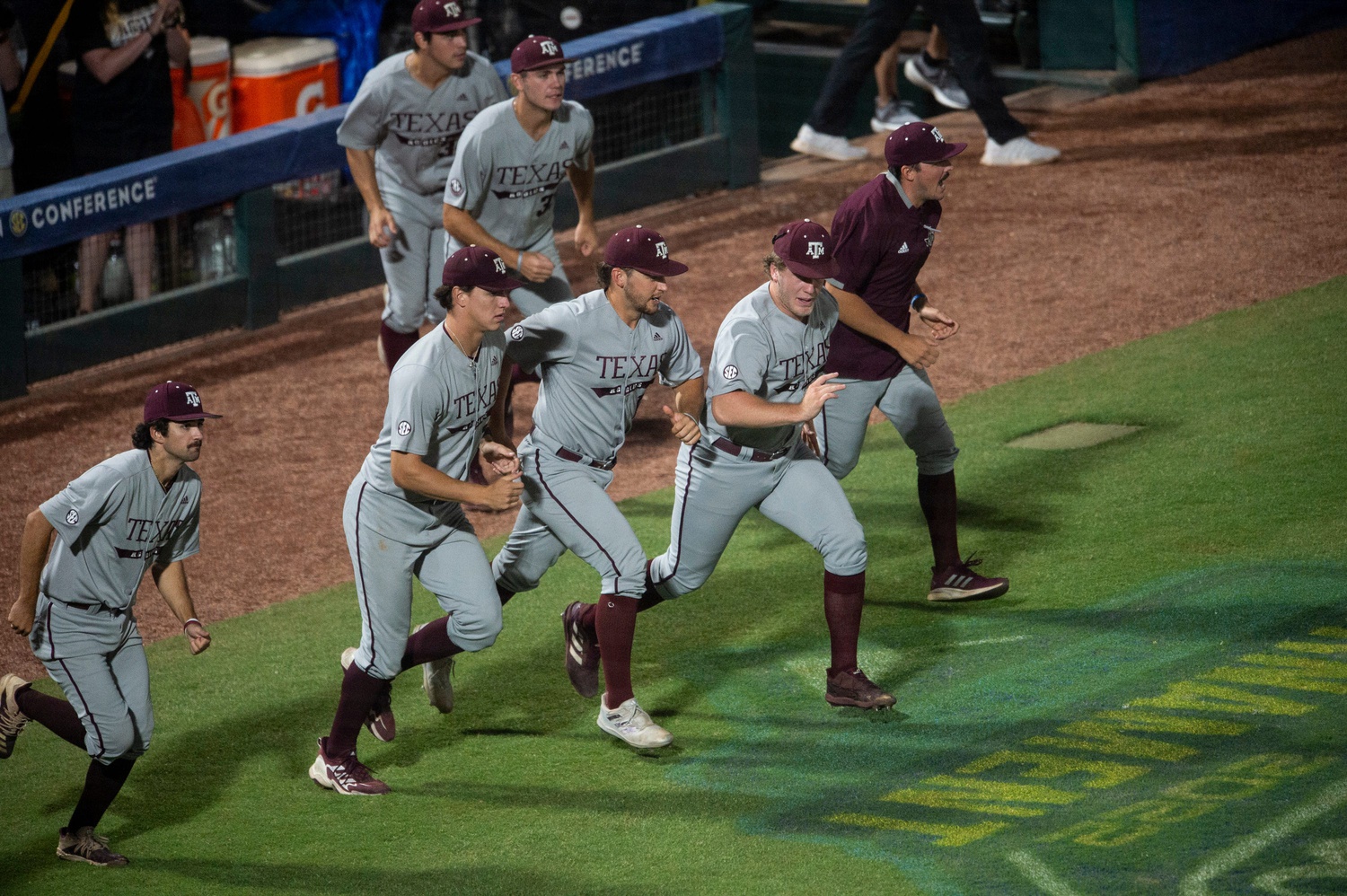
With 9 SEC squads competing in regional play Friday, there’s plenty of SEC action to anticipate. In fact, since no 2 teams from the same conference can play in the same region, previewing the SEC is previewing 9/16ths of the full NCAA bracket. That said, here we are with a quick look at the regional matchups, ranging from the SEC’s toughest to easiest:
Ole Miss, 3 seed in Miami Regional (starts Saturday)
The Rebels are the SEC’s lone 3 seed and definitely got stuck in a tough bracket. And that was before rough weather forced Friday’s opening game vs. Arizona to be postponed until Saturday.
To survive the regional round, the Rebels, who went 14-16 in SEC play and lost their first-round SEC Tournament game to Vanderbilt, have to survive No. 6 overall seed Miami (39-18) and a very decent Arizona squad (37-23).
Arizona doesn’t have a dominant pitching staff, but they do have two dangerous bats in Daniel Susac (.367, 12 HR, 61 RBIs) and Tanner O’Tremba (.351, 10, 52). Miami, on the other hand, has both a balanced offense (.291 team average) and a dangerous starting staff, led by Carson Palmquist (9-4, 3.09 ERA, 108 strikeouts in 78 2/3 innings). Tough out for the Rebels.
Vanderbilt, 2 seed in Oregon State Regional
The Commodores might as well have been sent to Siberia. To even get to host Oregon State, they’ll have to first outlast a very decent San Diego team (36-18), which is ranked in 1 of the 6 major college baseball polls — unlike Vandy. But Oregon State, the No. 7 overall seed, is a particularly tough out. Jacob Melton (.375, 15, 77) is a masher, but much of OSU’s strength is their running game, as they stole 74 bases while allowing opponents just 25 steals. Starter Cooper Hjerpe struck out 140 hitters in 89 innings, so Vandy will be in for tough sledding a long way from Nashville.
Georgia, 2 seed in UNC Regional
Georgia opens with VCU, which enters the NCAA Tournament on a 15-game winning streak. Tyler Locklear (.403, 19, 75) is nasty at the plate and VCU has a pretty deep pitching staff. If UGA survives, they’d likely get No. 10 overall seed North Carolina, which comes in having won 12 of its past 13, including the ACC Tournament. Carolina has a strong power game, with 86 homers, and a tough 1-2 pitching duo in Max Carlson (3-2, 3.64, 78 strikeouts in 66 2/3 innings) and Brandon Schaeffer (7-2, 3.70). Not a nice matchup for a UGA team that has struggled its way into the NCAA field.
Arkansas, 2 seed in Oklahoma State Regional
The Hogs will open with untested (41-19) Grand Canyon. GCU hit .309, but it’s hard to be sure about the talent of these guys against SEC pitching. That said, Oklahoma State, the overall No. 7 seed, is also in this bracket. Justin Campbell (9-2, 3.43 ERA, 133 strikeouts in 94 1/3 innings) is a legitimate ace, but the other OSU starters aren’t on his level. Offensively, State is solid, hitting .289 with 80 homers, but while they stole 55 bases, they allowed opponents to steal 59, which might benefit the Hogs.
LSU, 2 seed in Southern Miss Regional
The good news is Jacob Berry returns from the finger injury that sidelined him for much of the last few weeks of the regular season. The Tigers open with Kennesaw State, a contact-hitting club that allowed more homers than it hit and sports a staff-wide ERA of 6.08. The top seed, Southern Miss, is the No. 11 seed overall. The Golden Eagles held opponents to just 32 homers. With only one regular who hit above .292, the pitching better be strong, because LSU’s power game is dangerous, even to a team with a trio of starters with sub-3.00 ERAs.
Florida, 1 seed at home
The Gators open with Central Michigan, which was outhomered by opponents and had a ho-hum 4.71 team ERA. Andrew Taylor, however, is a stud. He’s a big, lanky righty who struck out 117 batters in 79 innings. He beat Miami earlier in the season, striking out 5 and allowing just 1 earned run in 4 1/3 innings.
CMU drew a ton of walks, but that might have more to do with inferior opposing pitching than virtuous patience at the plate. The Gators would see Oklahoma as a 2 seed, which is another team that allowed more homers than it hit (allowed 62, hit 54), and has a team 5.57 ERA. Liberty was one of the last teams in the NCAA field, but they did open the season by winning 2 of 3 from UF in Gainesville. The expectation is this isn’t the UF squad that Liberty saw in February. If not, UF has a good chance. If so, look out, Gators.
Auburn, 1 seed at home
The Tigers open with Southeastern Louisiana, which barely has a winning record (30-29). They hit .251 and allowed opponents to hit. 296. If they hang around, it’ll be on the basepaths, where they stole 113 bases and allowed just 27 steals. Tyler Finke (28 steals) and Evan Keller (25) are runners to watch. No. 2 seed UCLA and 3 seed Florida State are strong historical programs but on a bit of a downturn.
The Bruins hit just 41 homers this year and will lean on decent pitching (3.99 team ERA) and speed (72 steals, 21 allowed). Florida State hit .263 with just 57 homers. FSU has excellent starters, Bryce Hubbart (8-2, 3.18, 94 strikeouts in 73 2/3 innings) and Parker Messick (6-5, 3.36, 140 strikeouts in 93 2/3 innings), but not a ton of depth behind them.
Texas A&M, 1 seed at home
The Aggies open with Oral Roberts, which won’t be confused with Orel Hershiser. Oral Roberts hit .306 this year, but doesn’t have much power, and didn’t face much competition. TCU was highly regarded entering the season, but they lack strong pitching or explosive hitting, although their 91 steals in 103 attempts is a little concerning. No. 3 seed Louisiana is another run-heavy team, swiping 134 bases, with a trio of runners with 21 or more steals. But the Cajuns lack starting pitching depth. TCU has talent but hasn’t shown the consistency to take down A&M.
Tennessee, 1 seed at home
The most dangerous team the Vols could face is Georgia Tech, which hit .324 and mashed 110 homers — which is tied with Florida for 8th in the country.
Tennessee, of course, leads the country with 141 home runs.
Tech’s offense features speedster Chandler Simpson (.418 average, 23 steals) and slugger Kevin Parada (.356, 26 homers, 85 RBIs). But Tech also has a 6.55 team ERA, with no regular starter having an ERA below 5.40. Not unlike 3 seed Campbell, which (against subpar competition) crushed 111 homers, stole 125 bases and posted a 4.51 team ERA. Alabama State, on the other hand, has no massive slugging stats or crazy speed, and should be easy fodder for the Vols. As long as UT’s bats remain awake, the Vols should be fine.
Joe Cox is a columnist for Saturday Down South. He has also written or assisted in writing five books, and his most recent, Almost Perfect (a study of baseball pitchers’ near-miss attempts at perfect games), is available on Amazon or at many local bookstores.


